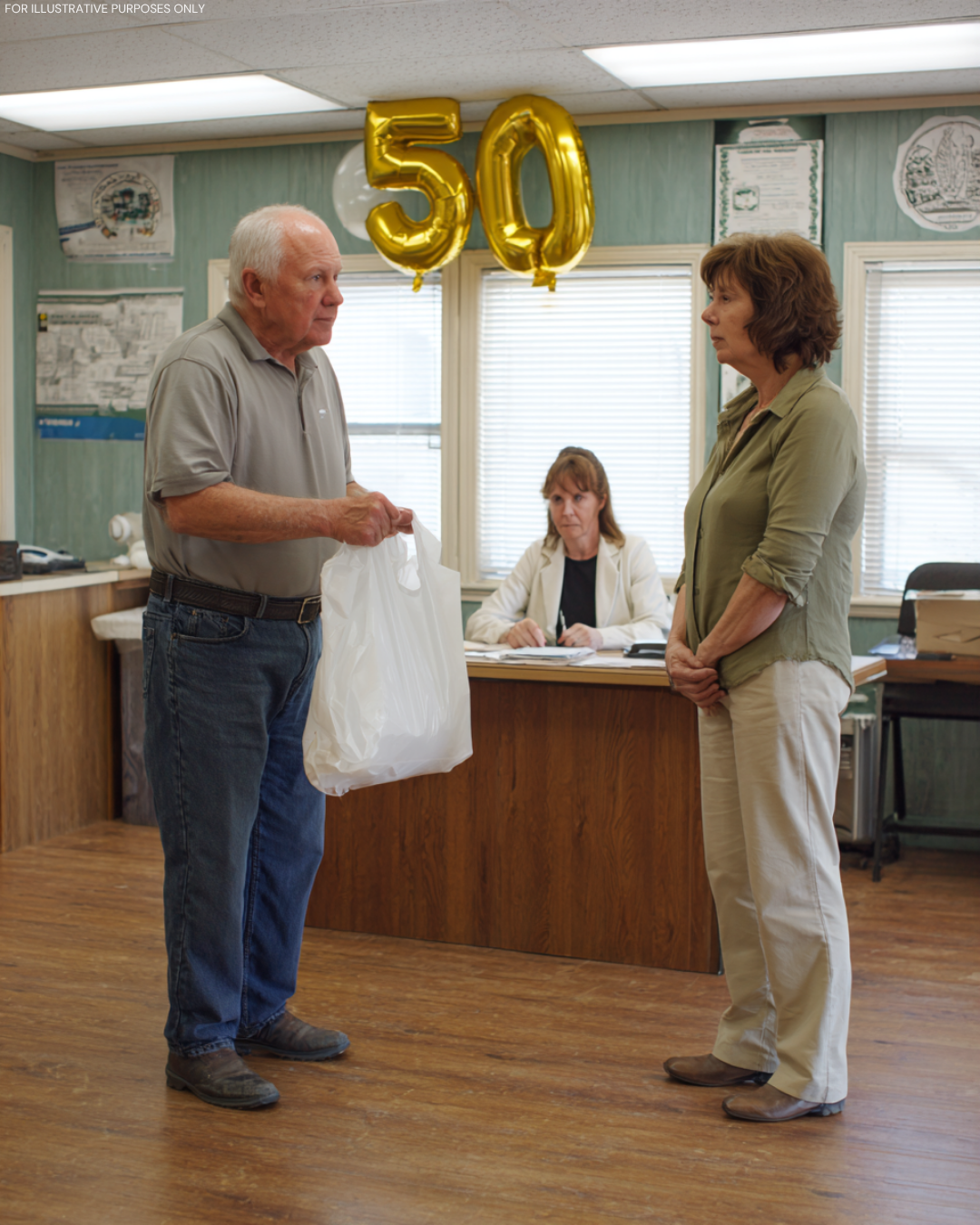
On the day their thirty-year marriage officially ended, Clara sat across from her husband, Ethan, in the attorney’s office. No shouting, no tears, just the quiet scratching of pens on paper. He looked smaller than she remembered, his shoulders sagging as though the years weighed more on him than she had realized.
When the papers were signed, he handed her a rough brown envelope.
“This is for you. Open it in a year. Please. Just promise me that” he said softly.
Clara frowned, but nodded. “Alright.”
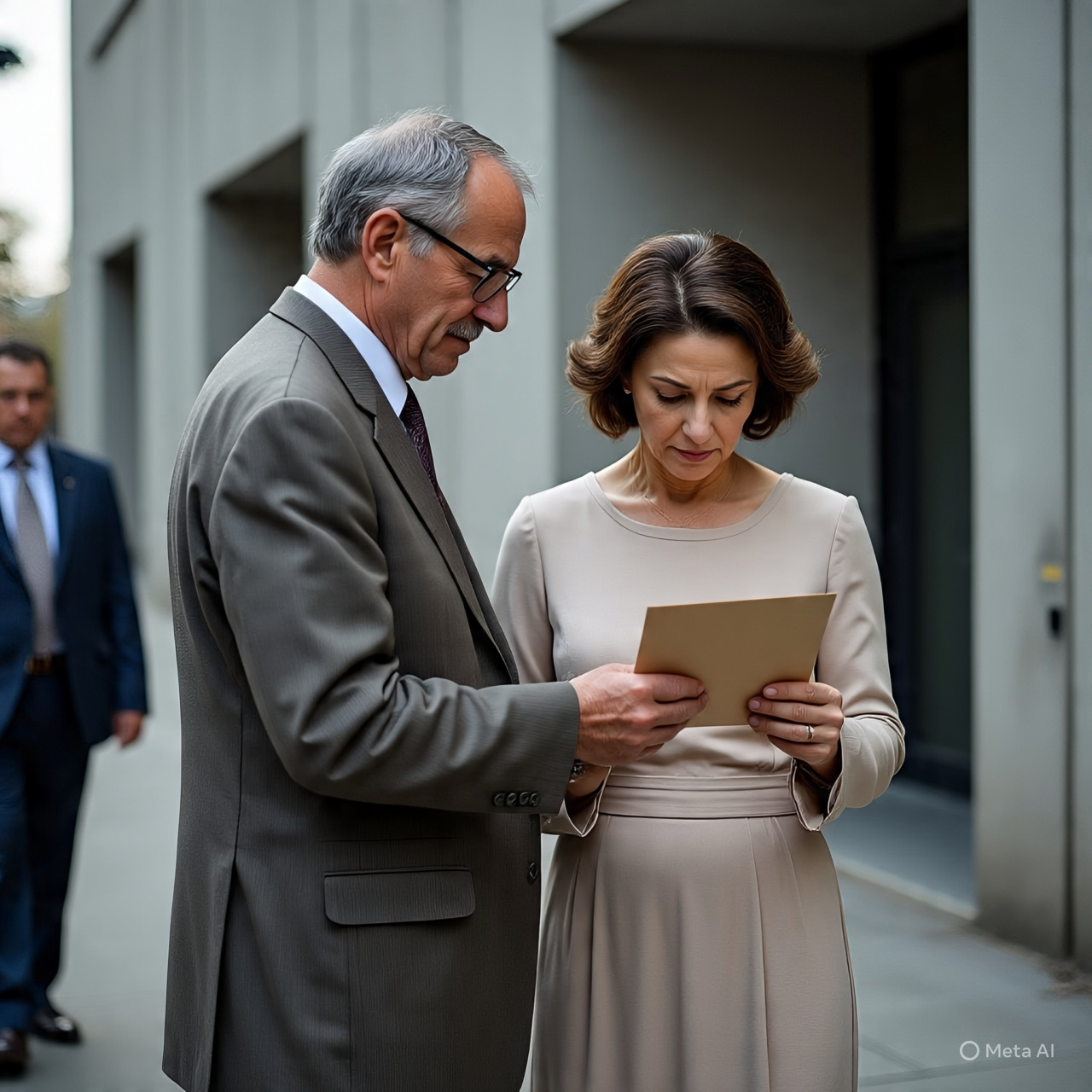
The year that followed was hollow. The house was quieter than she could bear, mornings without the smell of his coffee, nights without his breathing beside her. Their daughter, Grace, visited only occasionally, busy with her own life. Friends avoided the subject of Ethan entirely, as though his name was forbidden.
The envelope remained untouched in her closet, tempting her. Still, she kept her promise.
Exactly one year later, on April 22, Clara sat at her kitchen table, the envelope trembling in her hands. Her heart pounded as if bracing for something irreversible. Slowly, she opened it. Inside lay a folded letter and a small cloth-wrapped bundle.
The letter, written in Ethan’s familiar handwriting, read:
Clara,
If you’re reading this, thank you for keeping your word. I don’t know how this year treated you—whether you were angry at me, forgot me, or missed me. I hope it’s the last one.
You always said I never knew how to talk about feelings. You were right. Words got stuck in my throat. This is my way of saying what I couldn’t. The bundle contains answers I should have given you years ago.
Forgive me. Thank you for everything.
Always, Ethan.
Clara’s hands shook as she unwrapped the bundle. Inside was an old journal, the blue leather cover worn thin. She opened to the first page:
April 22. I don’t remember the year. I only know if I don’t start now, I’ll never say what’s in my heart. Clara will never know how much she means to me. I’ve been a coward all my life.
Tears blurred her vision. Page by page, Ethan’s voice spilled out.
She smiled today, and it turned my world upside down. I don’t deserve her, but I fear one day she’ll realize it.
When she asks if I love her, I only nod. If only she knew I want to scream it: I love you, Clara. Without you, I’m nothing.
We argued tonight. She cried in the kitchen. I stood outside the door, wanting to hold her, but I froze. I’m weak. She’ll never know I was there.
Clara pressed the diary to her chest. All those times she’d felt alone, he had been silently fighting his own battles.
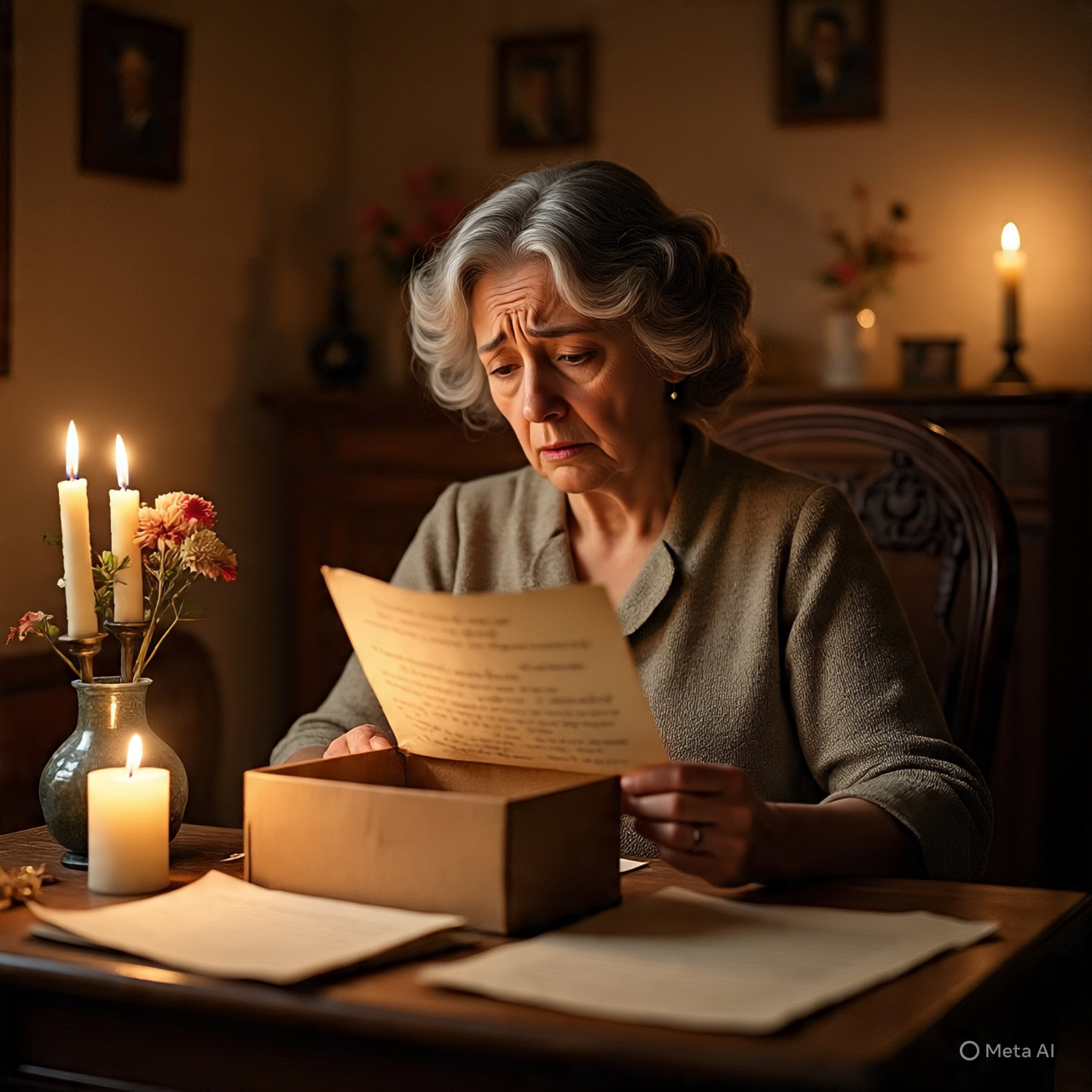
Then came the entry that shattered her:
I was diagnosed today. Clara doesn’t know. I won’t tell her. I refuse to make her watch me fade. Let her hate me, let her think I’m indifferent—better that than watching her break.
The final pages were written in shaky script:
Time is running out. By the time she reads this, I’ll be gone. I asked her to wait a year so the pain wouldn’t be so raw. I don’t want her last memory of me to be of sickness. I hope she forgives me.
Clara clutched the diary, sobbing. Then she noticed a smaller note tucked inside:
Clara, if you ever feel ready, there’s something for you in a shoebox on the top shelf of my workshop.
She rushed to his old garage. Dust and oil filled the air as she pulled down the box. Inside was a jewelry case and another note.
I saw you admiring this ring twenty years ago, and I promised myself I’d buy it for you. I waited too long. Let me do one thing right.
Inside was the sapphire ring she had once called her dream. She slipped it on, crying until her chest ached.
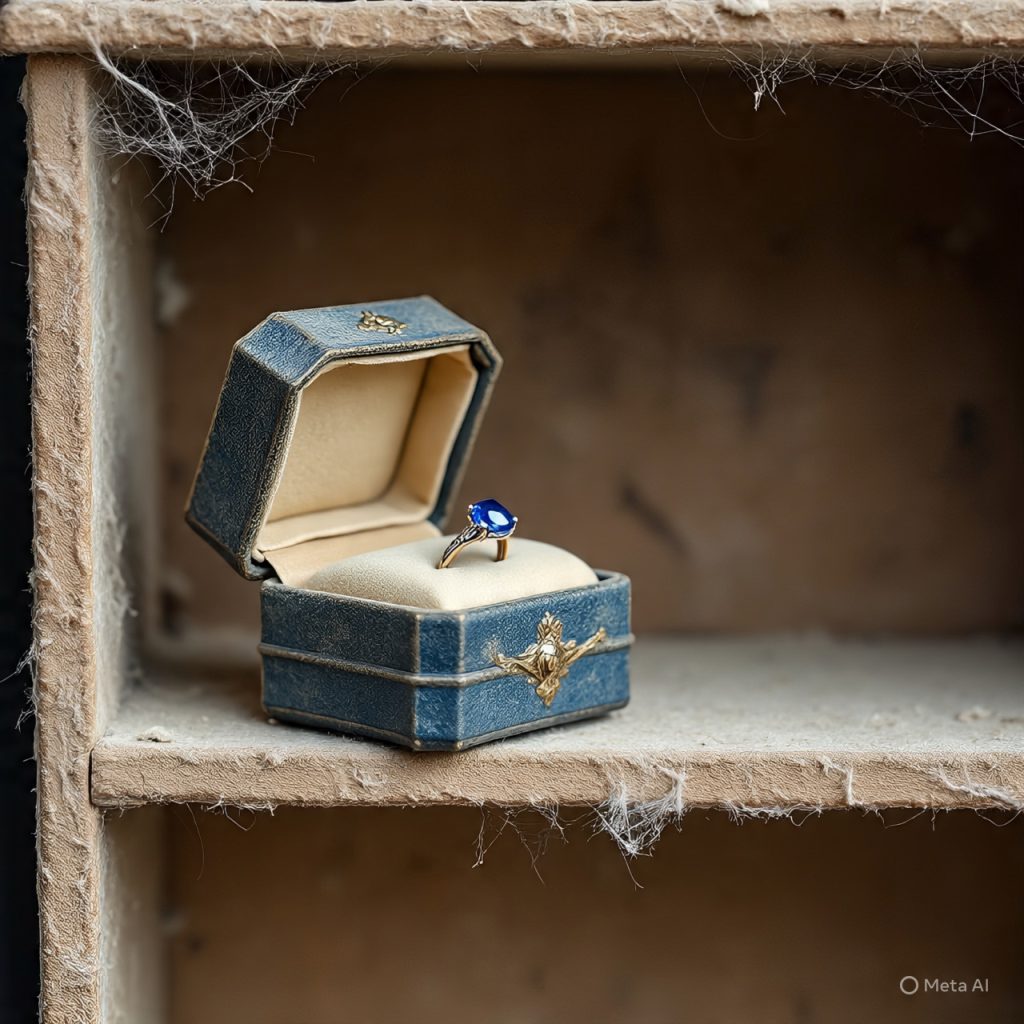
When Grace visited days later, Clara shared the diary. Her daughter read it silently, her hands trembling.
“Mom,” she whispered, “I thought he abandoned you. Why didn’t he tell us? We could have been there for him!”
Clara held her close. “He was afraid of being weak. He loved us… just didn’t know how to show it.”
Together, they visited his grave, marked only by a simple wooden plaque.
“No stone?” Grace asked bitterly.
“He didn’t want to burden me,” Clara said sadly.
Grace set her jaw. “He deserves better. We’ll fix this.”
Weeks later, a monument stood with the words:
“Ethan Miller – Beloved husband and father. Quiet, but true.”
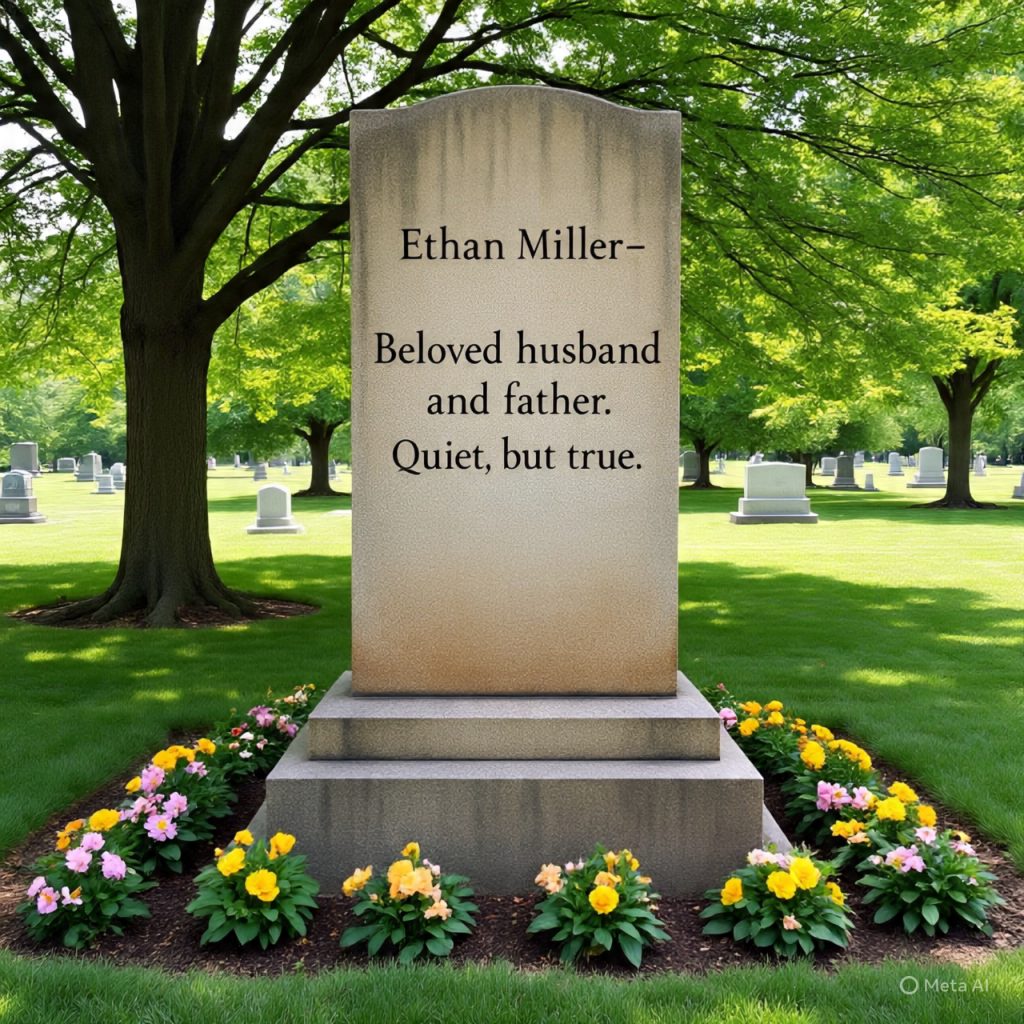
Life moved on. Clara began painting, something she had long buried. The diary stayed on her bedside table, the ring never left her finger. One spring afternoon, she met Daniel at an art class—a widower with gentle eyes. They shared stories, silences, and slowly, laughter returned to her days.
When she visited Ethan’s grave again, Clara touched the stone.
“Ethan,” she whispered, “I’m living. Just like you wanted.”
A warm breeze brushed her face, as if he answered.
Years later, surrounded by grandchildren, Clara told them about their grandfather—his love, his silence, his courage. She let them read the diary, so they would know love isn’t always loud; sometimes it’s hidden in the smallest gestures.
One evening, she opened the first page again, smiling through tears. The stars outside seemed to shine brighter.
“Thank you, Ethan,” she whispered to the night.
And with her heart full of gratitude, Clara moved forward—carrying his love with her, always.